印度建筑的减排潜力
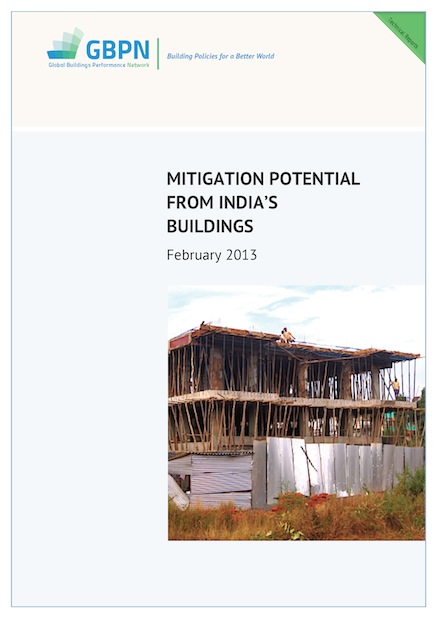
可靠证据表明,至2050年印度建筑领域会产生巨幅能源增长,基于此估测,本报告分析了印度目前建筑节能减排的政策框架及其节能潜力。
34 result(s) found

可靠证据表明,至2050年印度建筑领域会产生巨幅能源增长,基于此估测,本报告分析了印度目前建筑节能减排的政策框架及其节能潜力。
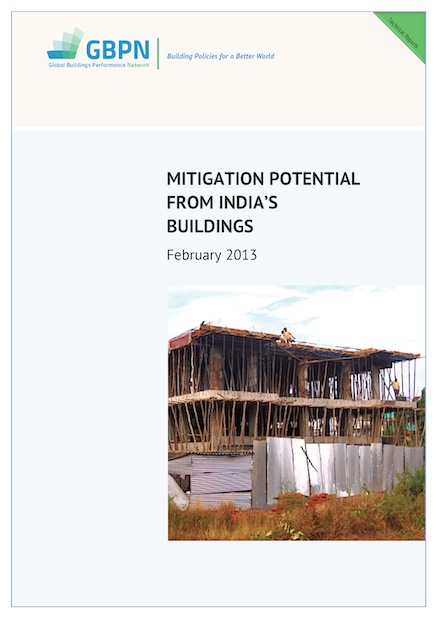 可靠证据表明,至2050年印度建筑领域会产生巨幅能源增长,基于此估测,本报告分析了印度目前建筑节能减排的政策框架及其节能潜力。
可靠证据表明,至2050年印度建筑领域会产生巨幅能源增长,基于此估测,本报告分析了印度目前建筑节能减排的政策框架及其节能潜力。
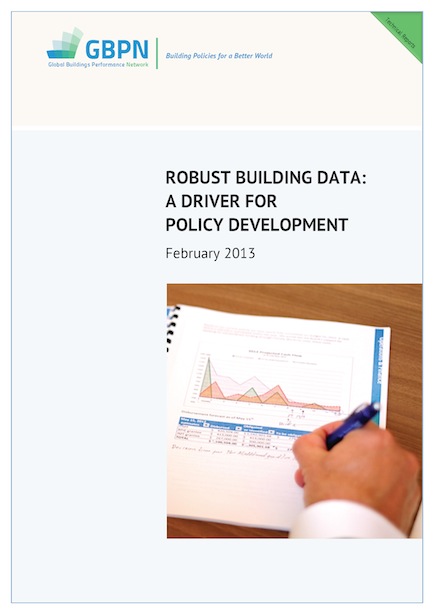 本报告就四个地区数据质量和数据的可利用性问题进行了分析,同时也提醒了我们需要完成多少工作才能建成一个强大而全面的建筑数据库,并提出了实现这个数据库的可行性建议。
本报告就四个地区数据质量和数据的可利用性问题进行了分析,同时也提醒了我们需要完成多少工作才能建成一个强大而全面的建筑数据库,并提出了实现这个数据库的可行性建议。
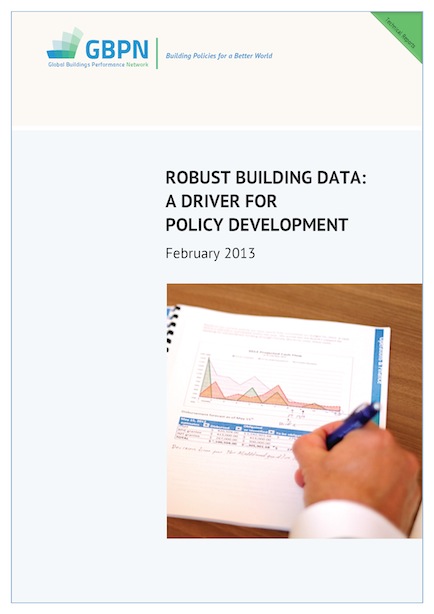 本报告就四个地区数据质量和数据的可利用性问题进行了分析,同时也提醒了我们需要完成多少工作才能建成一个强大而全面的建筑数据库,并提出了实现这个数据库的可行性建议。
本报告就四个地区数据质量和数据的可利用性问题进行了分析,同时也提醒了我们需要完成多少工作才能建成一个强大而全面的建筑数据库,并提出了实现这个数据库的可行性建议。
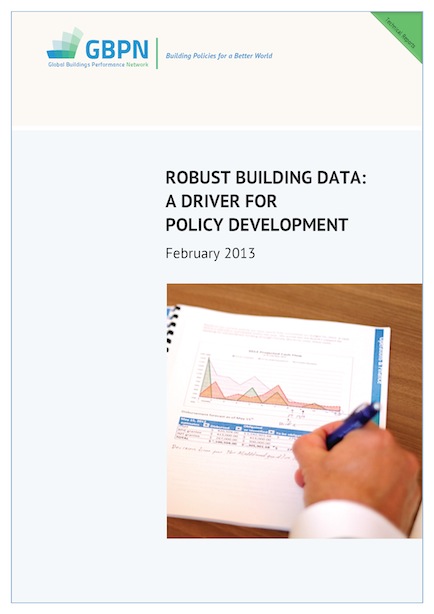 Technical Report:
Technical Report:
Discover where things stand regarding building energy data quality and availability in our four regions, this report reminds us of how far we have to go before a robust and comprehensive set of building data is in place and provides some recommendations of how we can get there.
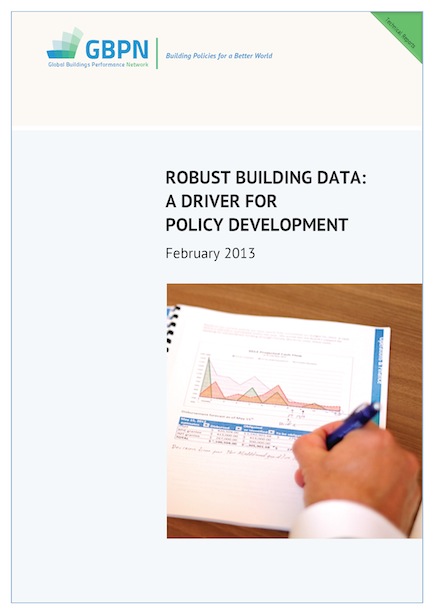 Data Annex
Data Annex
Discover where things stand regarding building energy data quality and availability in our four regions, this report reminds us of how far we have to go before a robust and comprehensive set of building data is in place and provides some recommendations of how we can get there.
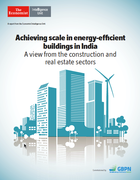 The Economist Intelligence Unit (EIU) report "Achieving scale in energy-efficient buildings in India: A view from the construction and real estate sectors" commissioned by the GBPN explains the challenges and opportunities of investing in energy efficiency in buildings in India.
The Economist Intelligence Unit (EIU) report "Achieving scale in energy-efficient buildings in India: A view from the construction and real estate sectors" commissioned by the GBPN explains the challenges and opportunities of investing in energy efficiency in buildings in India.
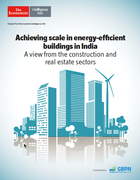 A report from the Economist Intelligence Unit (EIU), commissioned by the GBPN finds that while India’s commercial building sector has blazed the energy-effiency trail in the building sector, achieving significant scale will depend on efficiency measures becoming standard practice in the commercial middle market, retrofit and, particularly, the residential building segment.
A report from the Economist Intelligence Unit (EIU), commissioned by the GBPN finds that while India’s commercial building sector has blazed the energy-effiency trail in the building sector, achieving significant scale will depend on efficiency measures becoming standard practice in the commercial middle market, retrofit and, particularly, the residential building segment.
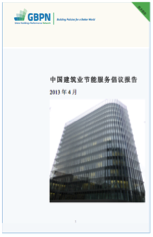 Executive Summary
Executive Summary
GBPN conducted a study on the factors affecting the use of ESCO models for the retrofit of existing buildings in China, identifying current barriers to the development of the Chinese ESCO market, while also researching best-practice examples of ESCOs globally and investigating the feasibility of introducing those examples to China.
This new GBPN report jointly developed with the Centre for Environmental Planning and Technology (CEPT) University, provides a first attempt to document energy saving potentials that could be achieved in India by 2050 in the residential sector. Four energy scenarios have been developed to identify the potential energy savings, each relating to a level of ambition of building performance policies and market efforts.
This study examines the sources of evidence that influence decision-makers who design or develop office buildings, and aims to explain why some managers engage more in evidence-based practice (EBP) than others. A mixed methods approach is conducted that combines quantitative results from 187 senior managers in the built environment and qualitative data from 18 interviewees. The respondents evaluated the use and trustworthiness of different sources of evidence, followed by an assessment of practitioners’ adoption and understanding of EBP.
There is now widespread recognition in the international community that the commitments made by national governments under the Paris Climate Agreement in 2015 cannot be achieved without concerted action by cities. Fortunately, many mayors have shown strong commitment to tackling climate change and a willingness to collaborate to achieve this goal.
Around the world, engineers, architects and policymakers have been exploring ways to deliver highly efficient buildings whose reduced energy demand is satisfied by clean, renewable energy. Building off of the broader concept of a green or sustainable building, the concept of the “net zero building” focuses on the energy dynamics and performance of the building. And as policymakers and leaders align toward the net zero concept, the focus on achieving deep energy efficiency has centered on integrated technologies as well as ways to connect buildings to the natural environment.
This paper outlines the approach and the cost-effectiveness potential for designing and retrofitting residential buildings to be energy-efficient in Bahrain. The analysis is focused on residential buildings since these buildings consume over 48% of the total electricity used in Bahrain. The optimization analysis has the benefit to assess both at the individual building and the national building stock levels, the potential of the application of currently proven measures and technologies to improve the energy efficiency of the building sector in Bahrain.